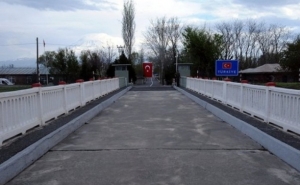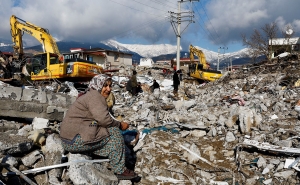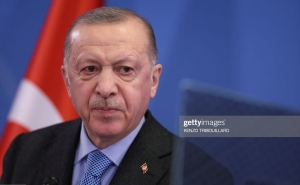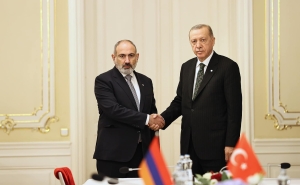 Erdogan's Turkey Will be More Unpredictable and Tough in Its Actions
Erdogan's Turkey Will be More Unpredictable and Tough in Its Actions
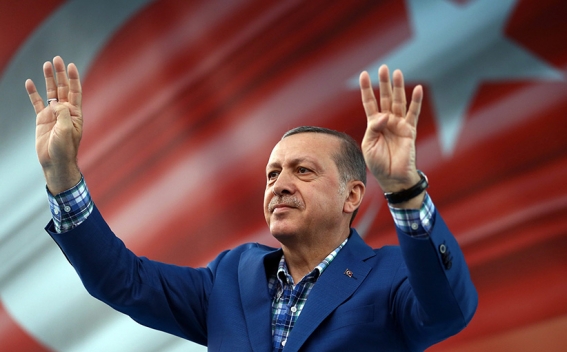
As a result of April 16 constitutional referendum in Turkey the country passed to presidential system of governance, which means extension of the powers of the President and concentration of great number of leverages in one hand – in this case in the hands of Erdogan.
The fact that for the sake of getting "Yes" result, Erdogan and his team used various means and leverages – starting from limitations of freedoms ending with oppressions and arrests – does not cause any doubt. This is already being voiced by the opposition, a part of them (non-free atmosphere for campaigning, uneven conditions, imprisonment of journalists, etc.) are also found in the interim report of international observers. And despite the great efforts only 51,42% of the Turkish citizens voted "Yes", which clearly showed that there is a polarization in the country in the issue.
It is noteworthy that 3 big cities of the country said "No" to the constitutional changes – Ankara, Istanbul, Izmir – cities, where the progressive part of the society lives and who, most probably, witnessing the policy conducted by Erdogan, imagined, what the establishment of one-man rule can bring.
60% of the Kurdish-populated regions of the country also voted against the changes. It is noteworthy that 40% "Yes" is quite a great number compared to the votes given to AKP by Kurds during 2015 general elections. Of course, taking into consideration the policy of Turkey towards Kurds especially during the recent times, maybe it was expected that the number of those, who would vote "No" would have been bigger. However, just the opposite took place, as the atmosphere of fear among the Kurds worked in favor of Erdogan.
What internal developments to expect after the constitutional referendum?
Despite the protests taking place in these days and the opposition appealing to the Constitutional Court, most probably Erdogan will be able to calm down the passions. This, of course, will take place not through meeting the demands, but through force, like such questions are being solved in Turkey. One could expect tension in the internal developments in Turkey if there was international intervention, but in the presence of the current geopolitical developments this is not in the interests of any of the power centers.
As for the Kurds, in the created situation two options are being left – they should either again take arms and fight or continue living under the threat of being gradually massacred. Options, neither of which gives any hope.
As for Turkish foreign policy in the created situation and its possible changes, first of all one thing should be taken into consideration – the extension of the powers and leverages will from now on make Erdogan more unpredictable, while his response to different events – quicker.
In this regard it should not be excluded that not making serious changes in the policy towards the US, Erdogan will carry out more targeted and tough actions towards certain issues. This refers mainly to the extradition of Gulen – an issue that became even more relevant after the military coup attempt, but did not receive any final solution.
A more difficult situation is in the EU-Turkey relations. The EU continues criticizing Turkey for actions that are against democracy, European value system, mentioning that in that case negotiations over Turkey’s EU membership cannot continue.
Turkey in its turn threatens Europe to break the migrant deal at the same time not taking seriously the voiced criticism. Nevertheless, it should be mentioned that despite the discontent in the both sides and the current tense situation, Turkey and the EU are important for each other and both sides perceive this. It is conditioned by this fact that none of them resort to sharp actions being limited only by announcements.
This is how quite an interesting step by Erdogan after the constitutional referendum is explained. After the military coup attempt for several times Erdogan has declared about his plans to restore death penalty. He voiced this also after the referendum, but this time already mentioning about possible referendum around it. Taking into account Erdogan’s policy carried out for so many years, it is excluded that Erdogan aims at deviating the attention of the international community from the noise that arose around the referendum – particularly the attention of the EU. Playing on this issue after a while, most probably, as a manifestation of "good will", Erdogan will just quit the idea of restoring the death penalty, which will be welcomed by Europe. This trick, as if, is succeeding. It is interesting that after the Turkish referendum, in the announcement of the President of France Francois Hollande a great attention was paid especially to the issue of restoring death penalty, which, according to Hollande, will contradict the Agreement of the Council of Europe signed by Turkey and the European values in general.
Referring to Turkey’s relations with other power center – Russia, it should be mentioned that no serious changes should be expected in this regard. Turkey will continue to make its relations with Russia warmer, until it does not contradict its interests.
As for Turkey’s policy in the region, conditioned by Erdogan’s personality, the expansion of his powers will make Turkey even more unpredictable and free. This, of course, will first of all be emphasized in Turkey’s regional politics. In this regard Armenian-Turkish relations will also not be exception.
Thus, it can be stated that after the constitutional referendum the world will deal will a new Turkey, which will be tough and free in its actions, at the same time will respond to various events more quickly.
Other materials on this subject
- 2 dead, 2 injured after fire at lodging section of Armenian Catholic Church in Istanbul He said the firefighter-rescue team arrived immediately. Armenian Catholic Archeparch of Istanbul Archbishop Lévon Zékiyan was also on the scene.
- Turkey is sending Cold War-era cluster bombs to Ukraine – FP The weapons are designed to destroy tanks by bursting into smaller submunitions, which can linger on the battlefield for years if they do not immediately explode. Each round scatters about 88 bomblets.
- Fire erupts in Turkey’s Black Sea port of Samsun following explosion The causes for the explosion that led to a fire are currently being analyzed.
- EU Urges Turkey to Stop Offering Russia Solutions to Circumvent Sanctions Speaking about the EU's engagement with Turkey, an important neighbor, EU partner and candidate country for EU membership, we stress the importance of ensuring that Turkey's foreign policy is aligned with...
- Any Change of Internationally Recognized Borders in Region is Unacceptable – Iranian President to Erdogan "The basis of our policy in the region is that the fates of the countries must be determined by themselves and that their national sovereignty and territorial integrity must be respected" Raisi told Erdogan...
-
 17:08
17:08The regular session of the Anti-corruption Policy Council takes place in Jermuk
-
 15:05
15:05The Prime Minister sends congratulatory messages to the supreme leader of Iran and the President of Iran
-
 11:11
11:11Armenia sends earthquake aid to Turkey
-
 10:43
10:43Commemoration of the Pontiff St. Sahak Partev
-
 09:16
09:16Some roads are closed and difficult to pass in Armenia
-
 19:55
19:55Phone conversation of the Foreign Minister of Armenia with the U.S. Assistant Secretary of State for European and Eurasian Affairs
-
 18:30
18:30Prime Minister Pashinyan and President Khachaturyan meet
-
 18:20
18:20Ararat Mirzoyan with Co-Chairman of the OSCE Minsk Group of France Brice Roquefeuil
-
 17:01
17:01Humans could land on Mars within 10 years, Musk predicts
-
 16:45
16:45France, US urge 'immediate' end to Nagorno Karabakh blockade
-
 16:01
16:01Blockaded Nagorno Karabakh launches fundraiser to support quake-hit Syria
-
 15:59
15:59Earthquake death toll in Turkey rises to 18,342
-
 15:43
15:43Ararat Mirzoyan Held a Telephone Conversation with Sergey Lavrov
-
 15:06
15:06French president rules out fighter jet supplies to Ukraine in near future
-
 14:47
14:475 Day Weather Forecast in Armenia
-
 14:44
14:44President Vahagn Khachaturyan wrote a note in the book of condolences opened in the Embassy of Syria in Armenia
-
 14:20
14:20Azerbaijan’s provocations impede establishment of peace and stability – Armenian FM tells Russian Co-Chair of OSCE MG
-
 12:57
12:57France representation to OSCE: Paris calls on Azerbaijan to restore freedom of movement through Lachin corridor
-
 11:40
11:40Command of Kosovo forces highly appreciated preparation of Armenian peacekeepers
-
 10:16
10:16The United States withdrew from sanctions against Syria for six months the provision of assistance after the earthquake
day
week
month
Humidity: %
Wind: km/h


